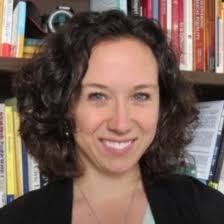By Elaine Schnabel
Note from Debra Rientsra: I’m away this weekend so I’ve engaged a guest writer from our sister blog, the post calvin. I’d like to introduce Elaine Schnabel, a 2011 Calvin graduate who has been writing for the post calvin since their founding in 2013. This month, the 28 regular writers on the post calvin are working with the theme “Part 2.” They’re revisiting a post they wrote earlier and writing a sequel or reflecting on how things have changed. The original post Elaine refers to here is called “Reverse Culture Baffle,” and I recommend that one, too.
For this month’s theme I chose a piece I wrote five years ago, when this whole post calvin thing got started. In a twenty-something-year-old’s life, five is a lot of years. When I wrote “Reverse Culture Baffle,” I was fresh off the plane from teaching for two years in South Korea. I was twenty-four, single, and insightful—excited to start the next phase of life and yet off-kilter. Things smelled familiar, but not good. My surroundings looked comfortable but felt made for someone bigger and louder than I had become.
A five-year story made short: I’m bigger and louder again. I’m not baffled by the big seats, lack of sidewalks, and the wide-open sky of Indiana. I’m home. I’m comfortable. I’m . . . powerful. Like Katerina, I’ve started to catalogue my micro-privileges, and they pile up so high I can’t see the world around me. I’ve lost the sight that once connected me to people who aren’t “like me.”
What would it take, I wondered one night, driving home from soccer on the south side, to see again? What would it take for me to stop in the “bad part of town,” I was driving through? To have an actual conversation with someone who lived two literal miles away from me, separated by hundreds of figurative miles of life experience?
I hit the pothole dead on. My whole car immediately began to shake, and I careened into a driveway before the car could stall and got hit from behind. Keystone is not a forgiving road.
I punched the hazards and jogged around the hood to confirm what was most likely: both tires on the passenger side were fully shanked and sagging into the gravel of the driveway. Two miles from home, in the “bad part of town.”
The front porch light was on, illuminating a cramped living room and a dark-skinned woman. She came out to meet the stranger making that apologetic face white people make when they meet people but don’t have anything to say. Then her mother, clutching a Bible with a handled, plush cover, came out with the four kids in tow, and they all piled into the family van to go to church. Before they left, she knocked on her neighbor’s door and introduced Marlin to me.
“He helps us all the time,” she explained and then they were off. Before I knew it, Marlin had changed out one tire for my spare and was rustling up another from a friend who had a similar car to mine. I don’t know what he said on the phone because my high school Spanish is dead and gone, but his friend showed up twenty minutes later and I had four functional tires on which to drive home.
I thanked Marlin and Yomara—his wife, whom he had dragged out to show her the car because, as she explained with an eloquent eyeroll, he loves the Honda Fit I drive—but they shrugged it off as no big deal. “I was just cleaning the house,” Yomara said.
As we stood there saying our goodbyes, two more cars violently met the pothole and careened off into driveways and flashed hazards. Marlin turned to me and shrugged, “We have no more tires!”
It was one of the best nights I’ve had in the last five years—my own wedding, graduation, and a publication included. The air was unseasonably heavy for February, with 60 degrees of humidity hovering in the dark night around us as we talked about family in Guatemala, their son’s education, and how much we all hate Florida.
I didn’t swerve around the pothole because I didn’t see it. In many ways, I’ve forgotten how to look outside myself and outside my culture.
I’ve spent so much time in the last five years relearning how to guard my time and possessions, relearning how to grab and take and control. It’s a sick, sick part of my white, American culture, not baffling at all but insidious and all-consuming.
I thank that pothole and my neighbors that night for pulling me outside my culture and reminding me that there are other ways to live. And I pray, desperate for hope that with reminders like that and people who know better, that I might someday be freer.

